Soy milk, coconut or cashew kefir can turn out to be a healthy alternative to the store-bought kefir. And did you know there is a simple recipe to making kefir at home? The secret to success is choosing a brand for your ingredients that distributes less processed soy milk, coconut, or cashew. In this article, you will discover how to make kefir at home and how it can benefit your health!
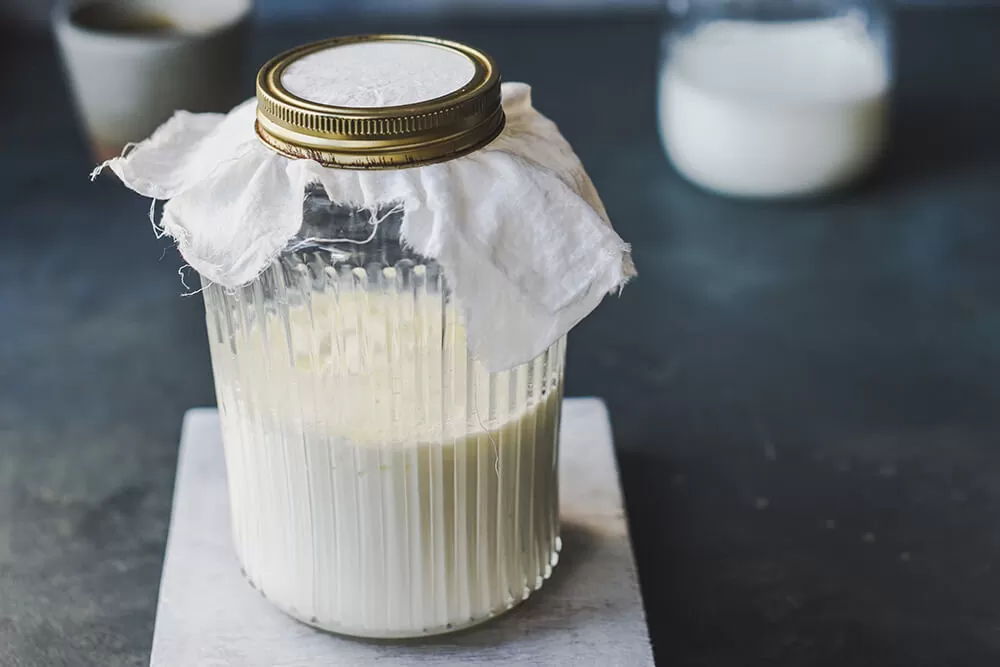
Why should you make kefir at home?
Making kefir at home from veggie milk can boost your health and feed your body the necessary nutrients. Some of the benefits of homemade kefir include:
- It prevents sugar cravings
- It helps digestion and nutrient absorption
- It tonifies the intestines and flattens the abdomen
- Kefir is considered probiotic and it’s good for your gut
- It balances your energy levels
How can you use veggie milk kefir?
The best part about making kefir at home is that you can use it for several purposes, such as:
- You can use it instead of sour cream or as a topping for your favorite dishes.
- You can add it to smoothies.
- You can use it to make homemade ice cream.
- Add it to your cereal or oatmeal.
- You can use it to replace a wide array of dairy products.
How to make kefir at home from veggie milk
Making kefir with nut, soy or coconut milk at home is becoming popular, and it’s not difficult. Kefir grains do require some care though. This signifies that when you get the grains, you need to sit them in a full fat cow or goat milk for around 24 hours. This process feeds the grains and allows them to thrive and offer the best homemade kefir. Also, it would be best if you soak your grains three times before moving on to the next step.
After you complete the initial soaking process, you should sit the grains in nut milk or coconut milk for another 24 to 48 hours. Afterward, you can sieve them as instructed and soak them again in full-fat milk.
Note: I’ve done it several times using kefir starter and have put it directly in veggie milk and it worked just fine. It took some time to find which brand works well, especially if you prefer the thick and dense texture. Some just do better than others. Pay special attention to the fat (more is better), and use brands with fewer additives and processing. It worked just fine for me.
To make kefir at home, you will need:
- Milk kefir grains or kefir starter.
- Veggie milk: Fresh homemade, canned, or boxed. We recommend avoiding brands with additives and sweeteners as they can be hard on the kefir grains (guar gum seems to do just fine). Go with full fat rather than a fat-free version.
- Clean jar and non-metal spoon.
With these ingredients, you can follow the instructions:
- Add the milk kefir grains in milk of your choice and stir with a non-metal spoon.
- Cover with a towel and let the jar with kefir culture on the counter to ferment between 12 to 35 hours. Regular room temperature will do the best. If it’s colder it might need more time.
- After fermentation is done, you can store the homemade veggie kefir in the fridge for a week. The kefir will still be active and grow/ferment, just that in the fridge it will be way slower
- You can reuse the kefir for your next batch – you’ll need around 1 dl (half a cup) of your “old” kefir and simply mix it with fresh milk of your choice and let it ferment again.
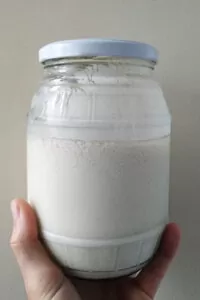
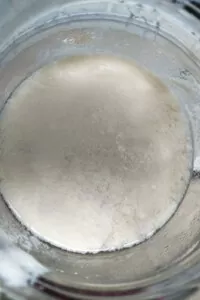
I personally prefer to have more “yogurt” aka dense texture of kefir and not as liquidy. Different brands do differently. I’ve tried experimenting by adding some (pea-mix) protein powder, but there was no difference.
If you live in Spain or Portugal those are the brands that seem to work well for me – Yosoy soy milk, Almendrola Almond milk (regular and unsweetened both seem to do good):
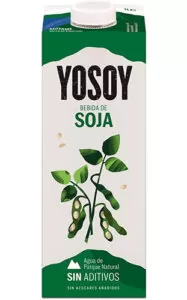
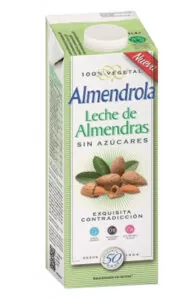
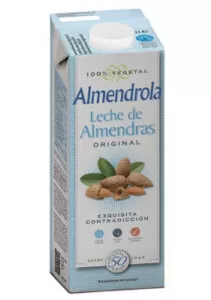
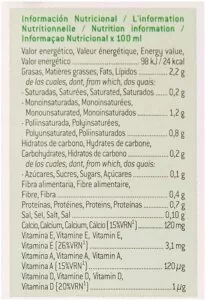
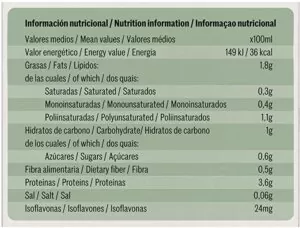
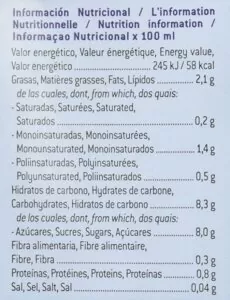
The bottom line
If you’re wondering why coconut kefir is so unique, you should know there several reasons why. Mainly, coconut is a whole food that promotes healthy immune responses. Also, it can improve brain and liver health. And the best part about making kefir at home from coconut milk is that its benefits significantly increase. As such, homemade coconut kefir increases the good bacteria in the digestive system, helps cleanse the body, and stops the growth of cancerous cells in the stomach. Our pro tip is to add protein to improve the density of coconut kefir, as this homemade recipe will get you a liquid drink without it. So, making kefir at home from veggie milk is the healthiest choice for you!